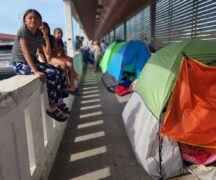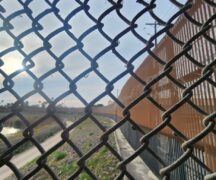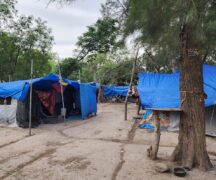By JAN LARSON McLAUGHLIN
BG Independent News
The images of asylum seekers on the southern border elicit cries for compassion from some Americans. But for others, it intensifies their demands for razor wire and 18-foot walls to stop an invasion from the south.
(Editor’s note: This is the third day of a series in Bowling Green Independent News – following visits to camps with the Practice Mercy Foundation – on the human cost of failed immigration policies at the U.S. border with Mexico.)
The singular term “border crisis” has double meaning in the U.S.
To some, the crisis is seen as an invasion of “murderers, rapists and drug dealers” permeating the U.S. To others, the crisis is the human suffering of refugees in waiting, with many ultimately being denied entrance to the U.S.
Regardless of the perspective, any possible resolutions appear at an impasse, mired in political fighting.
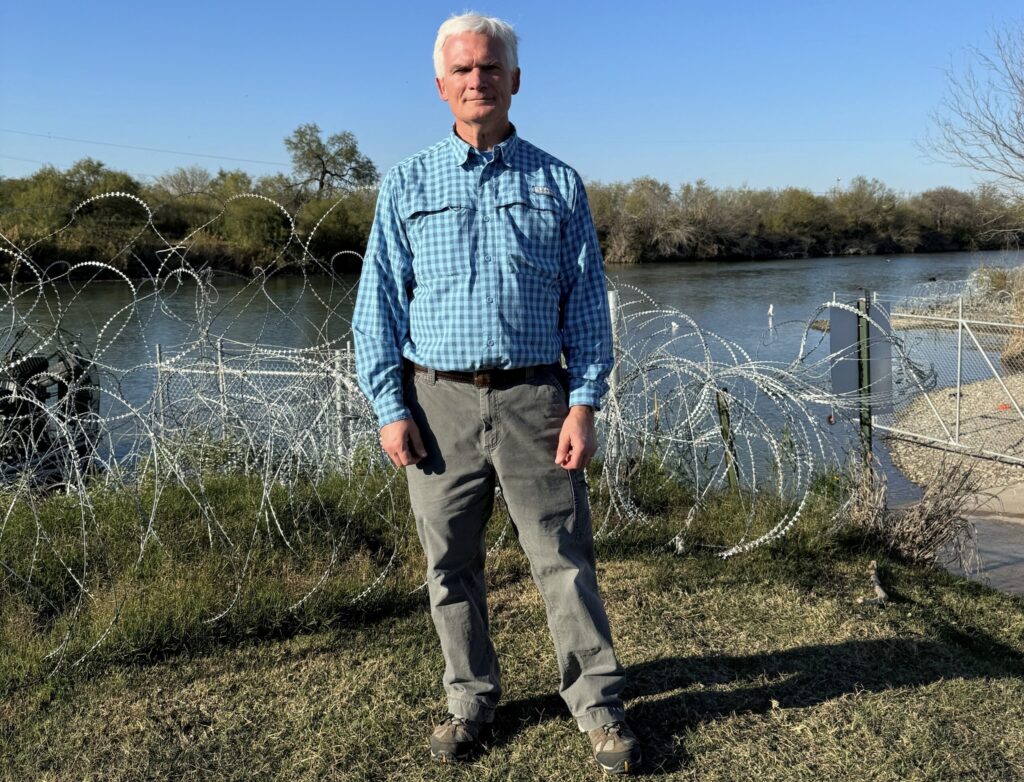
Politics over people
While families seeking refugee status are living under tarps in Mexico, U.S. politicians are putting on their best flannel shirts and jeans to pose next to border walls in Texas for photo ops showing they are tough on immigration.
Early this year, the congressman representing Wood County, Republican Bob Latta of Bowling Green, traveled to the Texas border with Speaker of the House Mike Johnson to hear from border control officials. Latta has repeatedly stated his concern for the lack of security at the U.S. southern border.
This was Latta’s fourth trip down to inspect the border, more than 1,500 miles from his congressional district. Yet over the past seven years, Latta has never made time to meet immigrants from Central America in his own district. After repeated requests from Wood County La Conexion members, he has yet to respond to them.
“We’re in a crisis and triage needs to be done,” but current immigration policies are doing nothing to slow the bleeding, said Pastor Jeff Schooley, of First Presbyterian Church in Bowling Green, who was along on the Project Mercy trip to Mexico.
“They have demonized and criminalized immigration – using them for political gains,” said Alma Ruth, founder of the Project Mercy Foundation. “They forget they’re humans.”
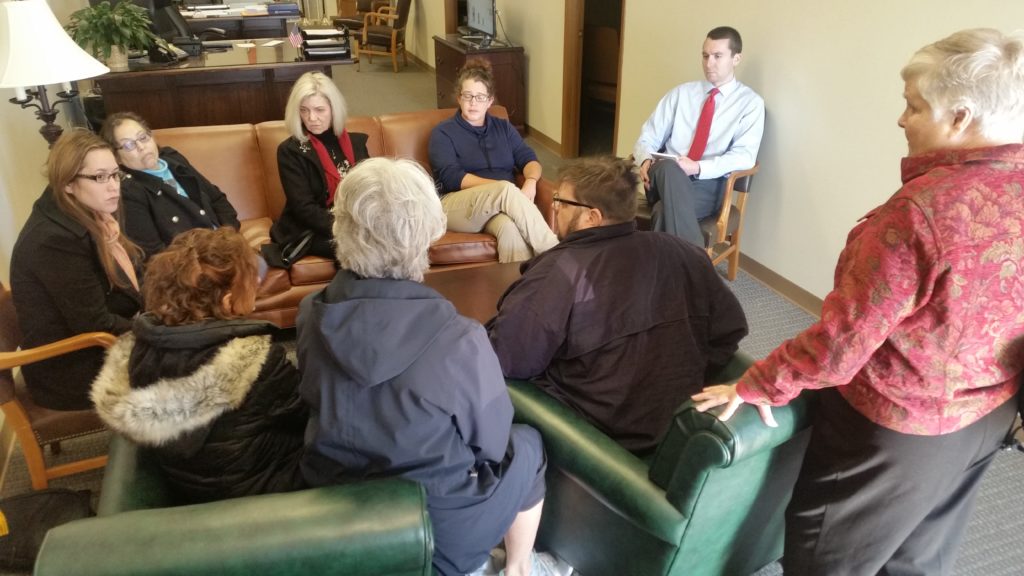
Over the years, members of La Conexion of Wood County have sat quietly in Latta’s Bowling Green office, asking to meet with him on such issues as the separation of parents and children at the border, the need for immigrant labor by local businesses, Deferred Action for Childhood Arrivals, and the disparaging language Latta and other politicians use when speaking of undocumented immigrants.
While the issues are extremely complex, many people involved believe the solutions rest in directing more resources into getting rid of the backload of cases, said Beatriz Maya, former leader of La Conexion in Wood County.
“They simply don’t want to,” she said. “They are using immigrants politically. They have no interest in finding solutions.”
During the Trump administration, the immigration policies became even more cruel, separating children from their parents, said Maya, who now lives in Houston.
“They realized they could use immigrants as a political bomb to explode and get support,” Maya said. “There is no real intention to find solutions. They only want to ignite hate.”
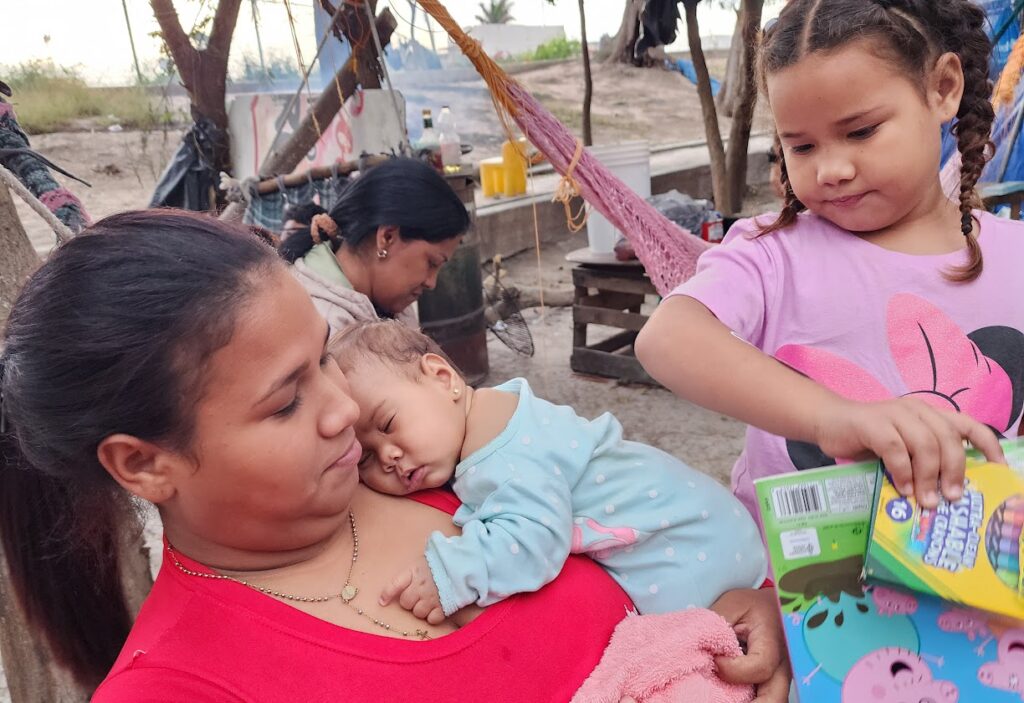
Missed opportunity
Congressional Republicans have been criticized for preferring the political benefits of a continuing border crisis over attempts to resolve the issue.
This past January, House Republicans refused to vote on a compromise package from the Senate to help solve the border crisis. The bipartisan bill included funding for 1,300 border agents, 100 inspection machines, 1,000 new investigators, 1,600 additional asylum officers, a record 375 new immigration judge teams, and more resources to support enforcement of immigration laws.
“Yet the House extremists would apparently rather travel and showboat than stay on the job and do the work to protect the border,” Congresswoman Marcy Kaptur, D-Toledo, said in January. “The GOP’s show at the border would come off as authentic if they hadn’t bailed on their work in Washington and if they weren’t holding up $13.6 billion in vital funds for those doing the hard work to protect that border day in and day out.”
In March, Latta told BG Independent News that his priorities in office will continue to be the economy and securing the southern border.
“It’s not getting better. It’s getting worse,” Latta said of the crush of people crossing over from Mexico. “We’ve got to stop the drugs flowing across. We need to hire more border patrol.”
However, Latta was among the Republicans in the U.S. House who halted the vote earlier this year on the bipartisan Senate bill that met many of the GOP demands for border action – and was supported by the border patrol.
Latta points to the number of “illegal migrants” crossing the southern border, the fentanyl getting into the U.S., and the cartels exploiting migrants.
“As illegal migrants traverse their way to our southern border, cartels are committing murder, trafficking children, and raping women,” Latta wrote.
“As the representative for Ohio’s Fifth District in Congress, I remain committed to this endeavor and will continue pressing for commonsense policies that put our people and nation first,” Latta wrote.
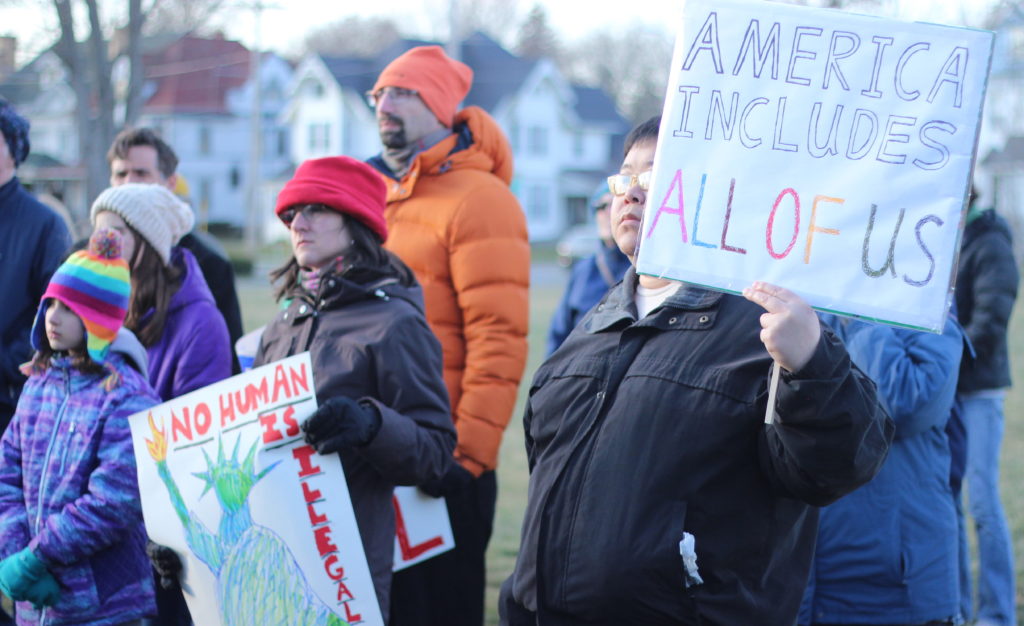
Crime data disputes slogans
Texas Gov. Greg Abbott has worked hard to vilify immigrants and convince Americans that the nation is “under invasion.” Feeding into this portrayal are politicians’ warnings about immigrants being murderers, rapists and drug dealers.
While it works politically to demonize migrants, studies show that the rate of serious crimes committed by immigrants is much lower than the rate for American citizens.
A National Institute of Justice study used comprehensive arrest data from the Texas Department of Public Safety to compare the criminality of undocumented immigrants to legal immigrants and native-born U.S. citizens between 2012 and 2018.
The study found that undocumented immigrants had substantially lower crime rates than native-born citizens and legal immigrants across a range of felony offenses. U.S.-born citizens were shown to be over two times more likely to be arrested for violent crimes, 2.5 times more likely to be arrested for drug crimes, and over four times more likely to be arrested for property crimes.
In March of this year, NPR also reported that research indicates that immigrants commit less crimes than U.S.-born people. Some of the most extensive research comes from Stanford University, where it was found that since the 1960s, immigrants are 60% less likely to be incarcerated than U.S.-born people.
There is also state-level research showing similar results. When researchers at the CATO Institute, a libertarian think tank, looked into Texas in 2019, they found that undocumented immigrants were 37.1% less likely to be convicted of a crime.
Studies have suggested there’s a real fear of getting in trouble and being deported within immigrant communities.
“Of course, there are bad people that come through,” said Dr. Celeste Gonzalez-Moreno, who works with Practice Mercy, and who with her husband owns a ranch on the Texas border with Mexico. But the vast majority are good people, she said. “They want to work hard, make a life and be safe.”
None of the Practice Mercy pastors believe that open borders are the solution.
“We’re not advocating for open borders,” said Pastor Ismael Flores, pointing out reports showing illegal drugs are coming into the U.S. at established checkpoints.
“They are not in a backpack coming through the river,” he said.
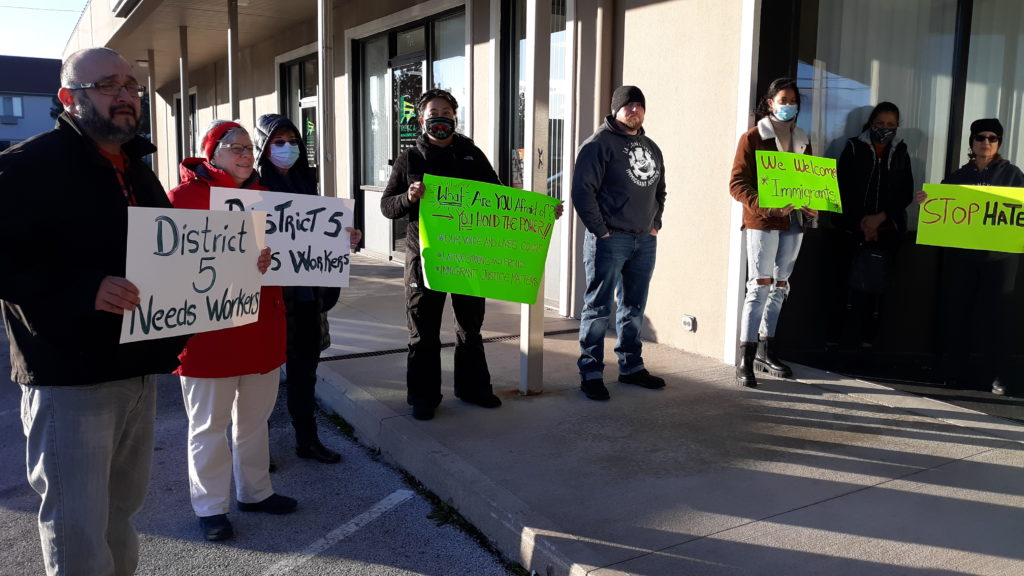
Jobs going unfilled
The U.S. currently has more jobs than it has citizens to fill them.
According to Pastor Aaron Reyes of the Practice Mercy Foundation, an estimated 40% of workers who cook, clean, work construction jobs, and perform yardwork are undocumented. It did not go unnoticed in March that the six construction workers killed in the Baltimore bridge collapse were all immigrants – from Mexico, Guatemala, El Salvador and Honduras.
“Immigrants make our economy even stronger,” Reyes said.
Reyes said many U.S. businesses rely on “illegal” workers, who do pay taxes.
“A lot of our economies depend on cheap labor,” with workers putting up with poor working conditions and exploitation, he said.
“Our country benefits from immigration,” Alma Ruth said.
In 2021, industries and immigrant advocates in Wood County met with congressional leaders about the acute labor shortages in the Northwest Ohio region.
Companies told of not being able to hire employees to fill positions. They reported there were workers willing and able to provide the labor they needed, but their immigration documentation was not in order. “They want to work, but we cannot hire them,” one employer said.
Also during that meeting, Mojabeng Kamala of Welcome BG, suggested barriers to immigrant labor need to be removed. Putting undocumented immigrants, including Dreamers, TPS holders, essential workers, and farmworkers, on a pathway to citizenship can only result in big economic benefits for all, she said.

Christianity welcomes foreigners
The Practice Mercy pastors in Texas are troubled by the twisting of scripture to promote walls to keep out people needing help.
“God loves the foreigners,” Alma Ruth said. “We’re all foreigners. We worship a migrant Messiah. Christians are called to care for migrants in our midst.”
White evangelical Christians, however, have been fueled by former President Trump’s “build the wall” mantra. Surveys suggest white evangelical Christians continue to support Trump even as he calls for “the largest deportation program in American history,” according to USA Today.
Many evangelicals have a negative perception of the recent number of immigrants to the United States, USA Today reported. Half say they are a drain on economic resources. More than a third see the number as a threat to the safety of citizens and a threat to law and order, while more than a quarter say they are a threat to traditional American customs and culture.
But there are signs of cracks in their previously united front, according to USA Today in February. A small, but growing group of evangelical Christian women are questioning the narrative of “invasion” at the southern border. They’re asking why lawmakers can’t reform the nation’s immigration laws in a way that could both enhance border security and treat people humanely. They say they’re returning to the roots of their faith – the gospel which tells Christians to welcome foreigners.
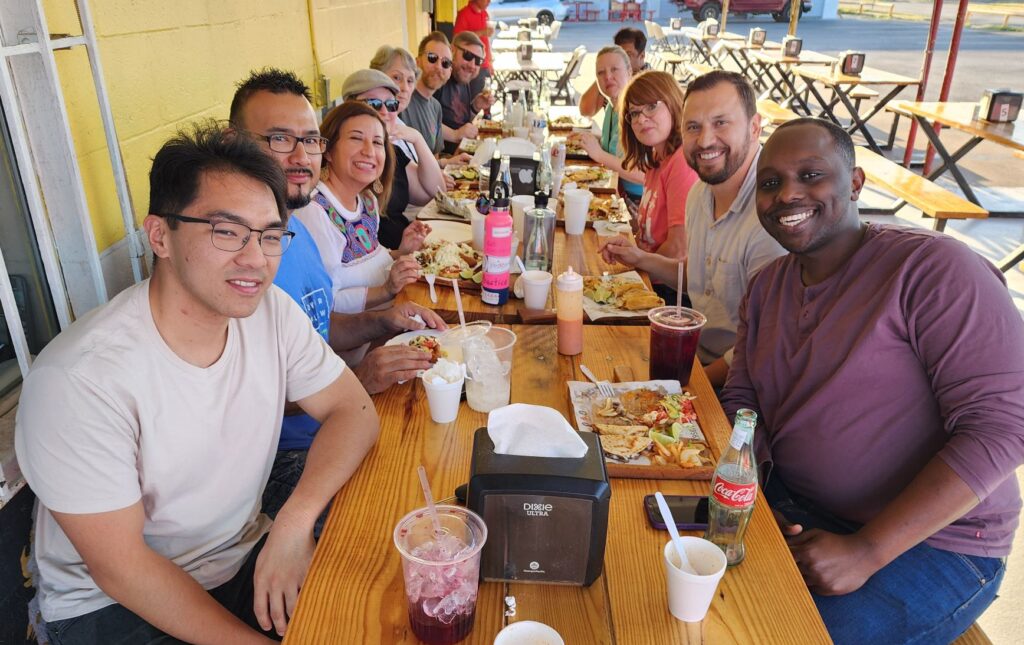
Tough topic in Texas
In Texas, it can be difficult to share concern for the humans entangled in the border crisis. “Immigration is a life or death conversation,” Alma Ruth said. “We live in the matrix.”
Conversations there about immigration are riddled with uncomfortable potholes. In some churches, if pastors address the human side of the border crisis, they lose chunks of their congregations.
“We have to be very careful about what we do,” Alma Ruth said. “We have multiple realities. Some say, ‘We got here and want to close the door behind us.’”
Discussions in every setting in Alma Ruth’s city of McAllen are especially fraught since the vast majority of residents either work in border control or have family members employed in immigration.
Though members of the Texas Trinity Presbyterian Church from Flower Mound were committed to seeing the border camps for themselves, some hesitated to tell family or co-workers back home about their Practice Mercy trip.
One woman told her employer she was going on a church mission trip – since that was considered an acceptable purpose – leaving out the part about visiting refugee camps. Another delayed telling her parents about the trip. When she finally did, her father told her not to bring home any refugees – using choice language.
When Pastor Flores, of the Practice Mercy Foundation, added some Spanish-speaking portions to his regular sermons in English, his church lost families.
But that doesn’t deter the mission.
“If you say you are a person of faith, then you abide by the scriptures,” which throughout the old and new testaments talk of welcoming foreigners, Alma Ruth said. “Our faith should shape our politics – not the other way around. Our children are watching us.”


